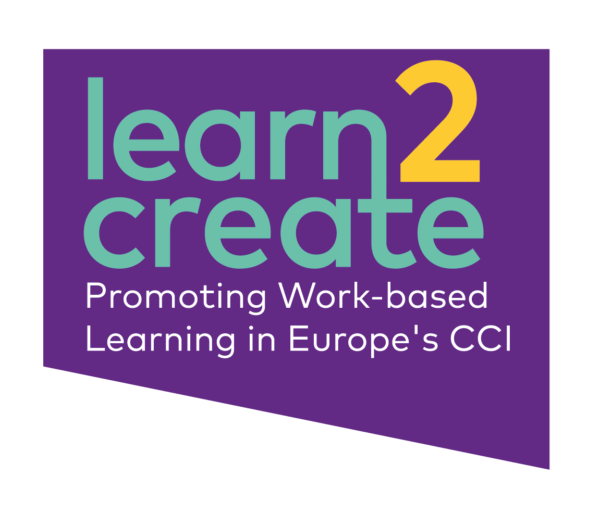By Innogate to Europe
As part of the implementation of the eCourse, we have developed a Facilitators Guide that will support organisations and trainers in the promotion of Work-Based Learning in the Creative and Cultural Industries. This guide will help them to:
- Understand the objectives and structure of the learning programme and how it will help their professional development.
- Recognise quality work-based learning, and how to communicate its benefits to colleagues, learners and businesses, and inspire them with its potential.
- Explain the importance of entrepreneurship and associated skills in the arena of work-based learning.
The Guide has been divided into five different chapters:
- Presentation of the methodology and the main concepts of WBL in CCI. Introduction to the current situation of the creative and cultural sector in Europe. It also explains the benefits of WBL for teachers and trainers less familiar with this methodology.
- The role and responsibilities of education institutions and businesses in effective WBL. Description of the role of each part involved in the process of work-based learning. It also depicts a common language for students, trainers and employers to facilitate the diffusion of information and best practices.
- Assessment and monitoring of high-quality Work-based Learning. This chapter describes a set of tools that will help teachers to assess the implementation of WBL in the creative and cultural industries.
- How to create links and Synergies with external Sources of Support? It provides useful skills, practical examples and successful approaches to help teachers and trainers communicate effectively with companies and entrepreneurs
- Organisation of workshops and online sessions for the VET teachers and trainers. The last chapter introduces different methodologies and provides some hints that will help the teachers to deliver the online course.
This manual will be integrated on the online platform to share and exchange information on the results and impact of the training course. The overall aim of the project is to make work-based learning more effective, so that it results in a win-win situation for both learners (resulting in early and enduring employment) and for the hosting enterprise (producing benefits to their business).

